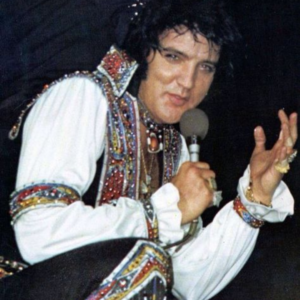
Introduction to “Clean Up Your Own Backyard” by Elvis Presley
Elvis Presley, the “King of Rock and Roll,” is a name synonymous with American music. His iconic voice, charismatic stage presence, and revolutionary blend of genres have solidified his place as one of the most influential figures in music history. Among his vast discography, “Clean Up Your Own Backyard” stands out as a compelling and thought-provoking track that delves into social commentary and personal reflection.
Background
Released in 1970 as part of the album “Across the Universe,” “Clean Up Your Own Backyard” is a departure from Presley’s typical romantic ballads and upbeat rock and roll anthems. The song’s lyrics are introspective and socially conscious, addressing issues of personal responsibility, societal hypocrisy, and the need for individual and collective change.
Presley’s rendition of “Clean Up Your Own Backyard” is marked by his signature vocal style, characterized by its raw emotion and expressive power. His voice conveys a sense of urgency and conviction, as he delivers the lyrics with a mix of tenderness and assertiveness. The song’s arrangement is relatively simple, featuring acoustic guitar, piano, and strings, which allows Presley’s vocals to take center stage.
The lyrics of “Clean Up Your Own Backyard” are rich in symbolism and metaphor. The song’s title itself is a powerful statement that encourages individuals to take responsibility for their own actions and avoid projecting blame onto others. Presley sings about the hypocrisy of those who criticize others while ignoring their own shortcomings. He urges listeners to examine their own lives and make the necessary changes to become better people.
One of the key themes explored in “Clean Up Your Own Backyard” is the importance of personal responsibility. Presley emphasizes that true happiness and fulfillment cannot be achieved by blaming others or shirking one’s own duties. He suggests that individuals must confront their own demons and make conscious efforts to improve themselves.
The song also addresses the issue of societal hypocrisy. Presley criticizes those who are quick to judge others while turning a blind eye to their own faults. He suggests that such hypocrisy is a barrier to progress and understanding. By calling out this hypocrisy, Presley encourages listeners to be more mindful of their own biases and to strive for empathy and compassion.